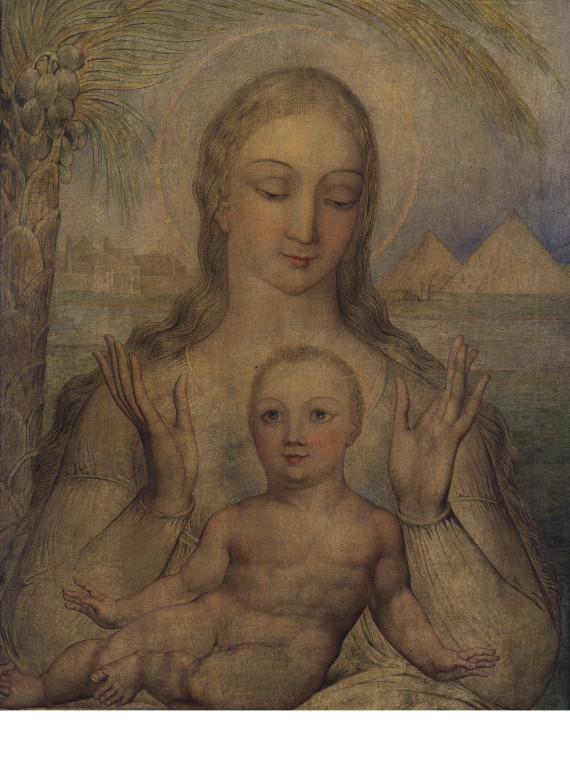Repost from December 2009
Generation to Blake was a gift from God to prevent the part of Eternity that separated from the whole, from falling into nonentity. Each birth is a reenactment of that mercy which gives a new opportunity for a return to the wholeness of Eternity.
The entry of the immortal spirit into the physical world, is what the images of nativity attempt to portray. Incorporation of the spiritual in the physical is a movement that sets off a process of evolving awareness of incarnation: the unity of body and spirit.
In Blake's words, the Nativity is concerned with the 'mortal birth.' Blake's primary interest was in the birth to immortality. Blake added TO TIRZAH to Songs of Experience in later copies of Songs as his affirmation of the raising of the spiritual body. But just as 'generation is the image of regeneration', birth is the image of rebirth, and the child is the image of the new man.
Here is a passage from Jung in which consciousness itself is the child which is born daily, or moment by moment out of the inner depths.
"Consciousness does not create itself-it wells up from unknown depths. In childhood it awakens gradually, and all through life it wakes each morning out of the depths of sleep from an unconscious condition. It is like a child that is born daily out of the primordial womb of the unconscious. . . . It is not only influenced by the unconscious but continually emerges out of it in the form of numberless spontaneous ideas and sudden flashes of thought." ["The Psychology of Eastern Meditation," CW 11, par. 935.]
The consciousness that Blake tried to convey was that of being a part of the one body; and being open to a direct connection to the world which is unseen but always present: Eternity.
Songs of Innocence and Experience, Song 52 (E30)
TO TIRZAH
"Whate'er is Born of Mortal Birth,
Must be consumed with the Earth
To rise from Generation free;
Then what have I to do with thee?
The Sexes sprung from Shame & Pride
Blow'd in the morn: in evening died
But Mercy changd Death into Sleep;
The Sexes rose to work & weep.
Thou Mother of my Mortal part.
With cruelty didst mould my Heart.
And with false self-decieving tears,
Didst bind my Nostrils Eyes & Ears.
Didst close my Tongue in senseless clay
And me to Mortal Life betray:
The Death of Jesus set me free,
Then what have I to do with thee?"
[text on illustration: It is Raised a Spiritual Body]
Jerusalem, Plate 7 (E149)
"And the Religion of Generation which was meant for the destruction
Of Jerusalem, become her covering, till the time of the End.
O holy Generation! [Image] of regeneration!
O point of mutual forgiveness between Enemies!
Birthplace of the Lamb of God incomprehensible!"
V
But peacefull was the night
Wherin the Prince of light
His raign of peace upon the earth began:
The Windes, with wonder whist,
XXVII
But see the Virgin blest,
Hath laid her Babe to rest.
Time is our tedious Song should here have ending,
Heav'ns youngest-teemed Star
Hath fixt her polisht Car,
Her sleeping Lord with Handmaid Lamp attending.
And all about the Courtly Stable,
Bright-harnest Angels sit in order serviceable.
Smoothly the waters kist,
Whispering new joyes to the milde Ocean,
Who now hath quite forgot to rave,
While Birds of Calm sit brooding on the charmed wave.






_-_Adam_Naming_the_Beasts_-_PC.95_-_Pollok_House.jpg)

